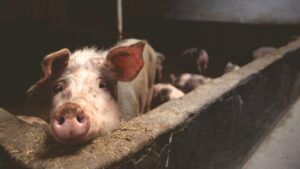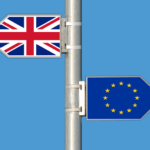African swine fever is a viral disease of pigs and wild boar that is usually deadly. There are neither vaccines nor cures. For this reason, it has serious socio-economic consequences in affected countries. Humans are not susceptible to the disease.
The typical signs of African swine fever are similar to classical swine fever, and the two diseases normally have to be distinguished by laboratory diagnosis. Symptoms include fever, loss of appetite, lack of energy, abortions, internal bleeding, with haemorrhages visible on the ears and flanks. Sudden death may occur. Severe strains of the virus are generally fatal (death occurs within 10 days). Animals infected with mild strains of African swine fever virus may not show typical clinical signs.
Evaluation in the EU
Improved surveillance, communication and collaboration are key to controlling the spread of African swine fever in Europe, according to a new risk assessment carried out by EFSA. The assessment estimates the potential for the disease to spread across south-eastern Europe. It was requested by the European Commission to support efforts to control and prevent the spread of the disease in the region.
EFSA evaluated the possibility of spread among nine disease-free countries: Albania, Bosnia-Herzegovina, Croatia, Greece, Kosovo, Montenegro, North Macedonia, Serbia and Slovenia, and the Agency concluded that the chances of the disease spreading within one year of introduction are very high (66-100%). However, the chances of the disease spreading west into other EU Member States within the same time frame are rated as very low (0-15%).
Measures of control
Control measures – which have been in place in the EU since 2014 – should continue to focus on the importance of early detection and preparedness, EFSA says. In particular, EFSA recommends:
- Rigorous surveillance, especially surveillance of wild boar and domestic pigs, which remains the most effective means for early detection of African swine fever.
- Measures to limit access of wild boar to food and further reduce boar numbers through hunting.
- Awareness campaigns for travellers, hunters, farmers etc. to limit the risk of spread via movement of people, as well as to assist with early detection.
- Communication and collaboration among national authorities and stakeholders to support awareness campaigns.
- Training activities for veterinary officers, other relevant bodies and hunters to increase the probability of early detection and effective control.
- Risk assessment of African swine fever in the south-eastern countries of Europe.
More information
Risk assessment of African swine fever in the south‐eastern countries of Europe
Agriculture and Fishery Section







Leave a Reply